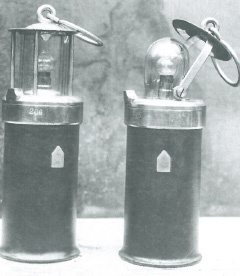Can Batteries Work Reliably Without a Battery Management System?
Technology
December 2. 2022
2 min.
If you’ve ever travelled by plane, you know that all electronic devices equipped with a battery should be carried in your on-board luggage. That is because even a power bank forgotten in a checked bag can cause enormous damage.

Devices that contain a lithium battery (such as laptops, tablets and even electronic cigarettes) may not be transported in checked baggage. That is because lithium batteries have issues with overheating, which in some cases may even lead to combustion or explosion.
Because batteries stored in the cargo hold are not monitored in any way, a fire could easily spread from an overheated battery to other combustible materials commonly found in luggage, and a disaster would ensue. Considering that burning lithium batteries can reach the temperature of several thousand degrees Celsius, the resulting fire would be essentially impossible to put out by dry powder extinguishers.
Exploding Phones, or When BMS Fails
You’ve probably heard about cases when someone’s mobile phone exploded in their pocket or while charging. When this happens, the reason is the battery overheating. This is why you should only charge phones, laptops etc. with original chargers and never leave them unattended while charging.
Nevertheless, battery overheating is not just a problem of phones and laptops. You must also be careful when recharging electric vehicles or bicycles, which also use lithium batteries. These also often catch fire because of overheating batteries.
Batteries have even caused fires on ships. The most disastrous ship fire was on the MV Conception in California in 2019, caused by the combustion of a lithium charging station for consumer electronics. The fire started very early in the morning when everyone was still asleep. Of the 39 people on board, 34 died.
Are you wondering how a lithium battery catches fire? The condition of a battery must always be carefully monitored. For this purpose, they are equipped with a BMS, or a Battery Management System. This system keeps track of the condition of each connected battery in order to identify potential failures in advance. The BMS protects every cell in the battery, equalises the voltage, and ensures optimal charging of all cells to the same level. If the voltage is too low or too high, or if the temperature rises to unacceptable levels, the system disconnects the power source. If the BMS doesn’t work correctly and does not disconnect the battery in time, it can fail and even catch fire.
Do All Types of Batteries Need a Management System?
The sensitivity of batteries to temperature changes and overcharging or discharging is caused by their chemical composition. In general, all types of batteries with one sole exception are unable to function safely without a BMS and degrade very quickly after a few full charging cycles.
The one exception that works reliably without any management system is the Ni-Cd cell. This battery is much more tolerant to overcharging and discharging than lithium batteries. This means that Ni-Cd batteries can be safely transported by air or sea. In fact, they are often included in on-board systems of both boats and planes to ensure their safe operation. In these cases, no BMS is used to monitor their performance, but only a temperature sensor and a voltage metre.
Similarly, there is no need for a battery management system in the case of All-in-One Ni-Cd solutions as essential battery data, such as the charge level, can be supplied by Ni-Cd compatible chargers. Battery Energy Storage Systems (BESS) are perfectly safe as they are. Not only do you save the cost of installing a separate BMS, but also additional costs for fire safety systems and air conditioning units that use BMS data to control temperature. Because Ni-Cd batteries do not require any air conditioning, they are also more efficient since no energy is needed for their operation. The difference is even more pronounced in the summer and in hot regions such as deserts, where Ni-Cd batteries are very popular due to the aforementioned qualities plus a lifespan of more than 20 years.
In terms of their resistance to temperature changes and the issues related to overcharging and discharging, Ni-Cd batteries simply have no competitor on the market.
Learn more:
Similar articles
What else can Electrolyte do
October 10. 2024
2 min.
ViewCutting Energy Purchase by a Third? Perfect Task for Batteries
September 5. 2024
2 min.
ViewWill Sodium replace Lithium in Batteries? It might, but it won't
August 19. 2024
3 min.
expert article
ViewShake it up to Wake it up
May 2. 2024
2 min.
View



